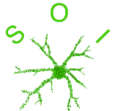Owen Gilbert
Ph. D., Evolutionary Biology
- owen.gilbert@gmail.com
- 512-585-9071

About me
My Research
I am involved with three main projects:
Why do botryllid ascidians recognize kin? Why do frog tadpoles associate preferentially with kin? How do we test Hamilton’s rule in turkeys? Questions like these inform our understanding of social evolution. The theory that I am developing, association theory, helps answer these questions. At its core is a distinction between how individuals treat each other (help/harm), versus whether they associate. The theory yields the first adaptive explanation for kin recognition and kin association preference upheld by empirical evidence, and it yields new approaches to testing Hamilton’s rule.
Why does the history of life show apparently progressive trends of increasing command over free energy and the expansion of cellular, multicellular and colonial forms of life? What accounts for discontinuous rates of change in the fossil record and the apparent sudden appearance of higher taxa? Why is sexual reproduction widespread among higher plants and animals? The macroevolutionary theory that I am developing helps answer these questions. The theory proposes the existence of a second non-random force of evolution, natural reward. Whereas natural selection acts through differential reproductive success of organisms within a species, natural reward acts through differential reproductive success of species and higher taxa. The theory of natural reward suggests that the progressive trends of evolution stem from a combined action of natural selection, acting as nature’s inventor (“creating”), and natural reward, acting as nature’s entrepreneur (“spreading”). It also predicts that transient population increases result in discontinuous rates of change and the apparent sudden appearance of higher taxa. It argues that sexual reproduction became widespread for reasons that have nothing to do with why it originated or is maintained.
The theory of natural reward suggests that science lacks rewards for innovation due to its highly bureaucratic command economic structure. I am proposing an auxiliary funding system that emulates the incentive structure of capitalistic economies. The system encourages private investment in research and allows division of labor between researchers, entrepreneurs and investors. The system provides up-front funding for risky research and hindsight rewards for innovation. This recovers the incentive structure of capitalism with a prize-based crowdscoring system that emulates market.
Favorite subjects
My Journey
1998-2002
Yale University
Undergrad EEB major
As an undergraduate, I was inspired by Elisabeth Vrba and Leo Buss. These professors convinced me that there were major discoveries awaiting the theory of evolution. My favorite courses outside of biology were general physics and environmental history. I also participated in two varsity sports, football and track. I left Yale with the hope of testing Buss's hypothesis for the evolution of kin recognition using social amoebae as a model.
2003-2011
Rice University
Graduate Student
As a graduate student, I performed field work on social amoebae that tested Buss's hypothesis for kin recognition. I ended up outlining a new approach to modeling the evolution of kin recognition.
2014-2024
University of Texas at Austin
Visiting Researcher
I further developed a new model of kin recognition based on "association theory." I also found that my research suggested an alternative approach to explaining macroevolution. I outlined a new theory of macroevolution based on "natural reward."
My "dog" attitude
I am thoughtful, introverted, and humble by nature. As a young defensive back on the Yale football team, however, I learned that I had to employ a “dog” attitude. This meant being simpleminded in pursuit of a goal. I had to approach every play in practice as if it were my last. That is the only way I could get a chance to compete on the field.
I thought that what I learned in football was irrelevant in science. If I were to propose a new idea, I should be humble, modest, and accommodating. I believed that this would best provoke constructive criticism and thoughtful discussion. Was I wrong!
In reality, being overly sensitive to others cherished dogmas left me open to misrepresentation, gaslighting and dismissal. I had to identify the guiding beliefs that inhibited progress if I was to delineate my arguments and reveal the source of prejudice against my views.

When I make bold claims, therefore, it is not because I am being presumptuous. It is because clear an forceful statements lead more quickly to constructive criticism, empirical tests, and to solutions of problems, than evading key issues does. I believe that Karl Popper was correct when he argued that science progresses by bold conjectures followed by attempts at refutation. This, in my view, is how we get to the truth as quickly as possible.



